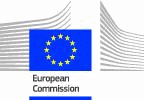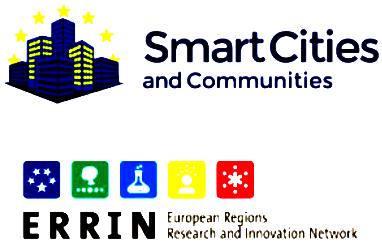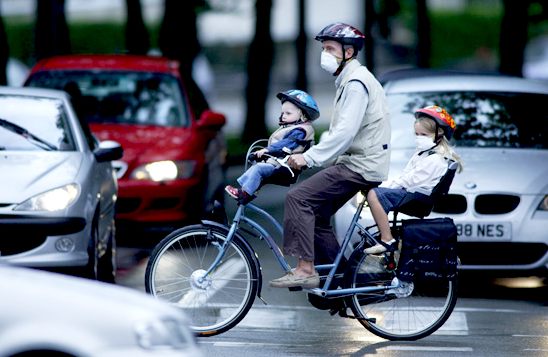|

HORIZON
2020
FEBRUARY
17-18 BRUSSELS - Shaping an EU Urban Agenda for Cities of Tomorrow
Giving Europe's cities a greater voice and putting the urban agenda at the heart of EU policy-making will be a key aim of the CiTIEs: Cities of Tomorrow: Investing in Europe forum in Brussels which takes place on February 17 and 18.
European Commissioner for Regional Policy Johannes Hahn is bringing together important figures in urban policy to plot the way ahead for a new EU Urban Agenda. With more than two thirds of Europeans living in cities, the meeting is designed to explore and debate ways to give cities a greater prominence when it comes to European policy, to make sure the needs of cities are better understood, and policies are more co-ordinated. It aims to highlight the key role cities can play in achieving wider European goals like tackling climate change, unemployment and social exclusion.
The discussion will centre around an issues paper prepared by the European Commission. A series of events will take place involving key actors including numerous urban experts, city associations, local authorities and representatives from national ministries as well. Mayors from 16 capital cities in the EU who are meeting at the forum, are also expected to join calls from member states for a coherent EU urban agenda.
Ministers representing the Greek and Italian EU Presidencies will be speaking at the plenary event.
Commissioner Hahn has championed the cause of cities and urban development throughout his mandate. He said, "I am determined to raise the profile of our cities. Cities are too important to be treated as a side issue. They should be central to our thinking. After all, most Europeans live in cities. We need to make them a better place to live in and make sure they are better heard."
He added, "This is why I now want to launch a debate to ensure the urban reality of today's EU is fully understood and taken into account by policy makers. Cities of tomorrow are the Europe of tomorrow."
Through high-level meetings, workshops and its main plenary, the forum will explore how a more coordinated approach can be extended across all levels of European policy making. It will pose a number of questions about the role of cities in implementing policies which should reflect their potential and needs – and how this can be achieved.
For the first time the UN Human Settlements Programme: UN-Habitat has requested the EU and the European Commission to make a contribution to the HABITAT III conference in 2016. Commissioner Hahn and the European Commission’s Directorate-General for Regional and Urban Policy will provide that input on how the EU can develop a new approach which can be offered to others around the world as a model.
Joan Clos, United Nations Undersecretary-general, and Executive Director of UN–Habitat (as well as former mayor of Barcelona) will also be addressing the forum and giving a joint press conference with Commissioner Hahn.
BACKGROUND
In 2012 Commission President José Manuel Barroso decided to make urban policy the responsibility of the European Commission’s Directorate-General for Regional and Urban Policy under the supervision of Commissioner Hahn. This was in recognition that the EU needed a more "joined up" approach to urban policy and that Europe's cities are vital to address global challenges and implement the EU's 2020 Growth Agenda.
The recent reform of EU Regional Policy, has made the urban dimension more central: it is expected that half of the European Regional Development Fund investments for 2014-2020 will be made in cities and urban areas. Furthermore, Member States are obliged to invest 5% at the very least on integrated sustainable urban actions.
Capital city mayors, met for the first time as a distinct group with Commissioner Hahn in February 2013 issuing a joint statement entitled: 'Smart, sustainable and inclusive growth: EU Capital Cities – essential partners for Europe 2020'. Attending this time are Rome, Vienna, Sofia, Zagreb, Warsaw, Bratislava, Bucharest, Nicosia, Riga, Helsinki, Ljubljana, Lisbon, Tallinn, Athens, Valletta and Amsterdam. Commissioner Hahn will draw together the different discussions at the forum and report to the forthcoming informal council of EU ministers on Regional Policy meeting in Athens in April under the Greek EU Presidency.
A joint press conference with Commissioner Hahn and Joan Clos UN Undersecretary-general, and Executive Director of UN-Habitat will take place at 13:15 in the Charlemagne building on 17th February.

A
nicely integrated solar home - as far as we know the 1st proposed. Zero
carbon living that is affordable - provided that sensibly priced land is
provided to keep houses below £50,000

AGENDA
Monday 17 February 2014
9h00-10h30
+ 11h00-12h30 - Side Events
|
City
Associations
BERLAYMONT BUILDING (SCHUM)
Interpretation: EN- DE- FR- IT- ES- EL
Session hosted by
Eurocities and the Council of European Municipalities
and Regions
Agenda
Webstreaming
|
Directors
General
CHARLEMAGNE (MANS/JENK)
Interpretation: EN-FR-DE
Meeting of Member State
Directors-General responsible for urban development
|
EU Capital
Mayors
(start at 11.00)
BERLAYMONT BUILDING (WHALL)
Interpretation: EN-FR-DE-IT-PT-EL-FI-SV-CS-ET-LV-PL-SK-SL-BG-RO-HR
Meeting of the Mayors
of EU Capital Cities
|
|
12h30-14h00
Lunch and registration
|
14h00-17h30
- Plenary Session
|
CHARLEMAGNE BUILDING
(GASP)
Interpretation: EN-FR-DE-IT-ES-EL-PT-PL
Webstreaming
|
|
Moderator : Tony
Travers (London School of Economics)
|
|
Opening
addresses
- Johannes Hahn,
Commissioner for Regional Policy
- Yannis Maniatis,
Minister of Environment, Energy and Climate Change,
Greece
|
|
EU Urban Agenda
Statements:
- Joan Clos, UN
Undersecretary-general, Executive Director of UN
HABITAT
- François Lamy,
Minister for Urban Affaires, France
- Paweł Orłowski,
Under-secretary of State, Ministry of Infrastructure
and Development, Poland
- Mark Frequin,
Director-general for Housing and Building, Ministry
of the Interior and Kingdom Relations, the
Netherlands
|
|
15h30-16h00
Coffee Break
|
|
Panel Debate
Panel participants:
- António Costa,
Mayor of Lisbon, Member of the Committee of the
Regions
- Hanna Gronkiewicz-Waltz,
Mayor of Warsaw, President, Eurocities (tbc)
- Giorgio Orsoni,
Mayor of Venice (IT), co-President, Council of
European Municipalities and Regions (CEMR)
- Benjamin Barber,
Center on Philanthropy and Civil Society, The City
University of New York
- Harry van Dorenmalen,
Chairman of IBM Europe
|
|
Plenary closure
- Jan Olbrycht, Member
of the European Parliament, Chair of the Urban
Intergroup
|
|
18h00
Evening Reception & Buffet Dinner
|
Tuesday 18 February 2014
09h-10h30 - Cities and
Business
CHARLEMAGNE BUILDING (GASP)
Interpretation: EN-FR-DE-IT-ES-EL-PL-PT
Webstreaming
|
Chair: Johannes
Hahn, Commissioner for Regional Policy
Participants:
- Günther Oettinger,
Commissioner for Energy Policy
- Markus Beyrer,
Director General, BUSINESSEUROPE
- Martin Powell , Head
of Urban Development, Siemens
- Nicolas Blain,
President of EU Committee, International Association
of Public Transport (UITP), RATP Advisor for
European Affairs
- Chris Vein, Chief
Innovation Officer, World Bank
|
|
10h30-10h45
Coffee Break
|
10h45-12h30
- Parallel Workshops
|
The Urban
Dimension of Smart Growth
CHARLEMAGNE BUILDING
(GASP)
Interpretation: EN-DE-FR-IT-ES-PL
Webstreaming
Chair:
- Zoran Stančič
, Deputy Director-General, , European Commission,
Directorate-General Communication Networks, Content
and Technology
Scene setter:
- Antonio Calafati,
Professor, Gran Sasso Science Institute, Italy
Panel:
- Cristina Gutiérrez-Cortines,
Member of the European Parliament, member of the
URBAN Intergroup
- Esa Halme, Region
Mayor, Tampere Region, FI
- Anneli Hulthén,
Mayor and Chairman of the City Executive in
Gothenburg, SE
- Ingolf Schaedler,
Deputy Director General for Innovation, Austrian
Federal Ministry for Transport, Innovation and
Technology, Chair Urban Europe JPI
- Charlina Vitcheva,
Director, European Commission Directorate General
for Regional and Urban Policy
|
The Urban
Dimension of Green Growth
CHARLEMAGNE BUILDING
(MANS)
Interpretation: EN-FR-DE-IT-ES
Webstreaming
Chair:
- Karl Falkenberg,
Director-General, European Commission,
Directorate-General for the Environment
Scene setter:
- Dr Hans Bruyninckx,
Executive Director of the European Environment
Agency
Panel:
- Helena Säteri,
Director-General, Department of the Built
Environment, Ministry of the Environment, FI
- Lykke Leonardsen,
Head of Strategy and Authority - City of Copenhagen,
DK
- Kees van Leeuwen,
Coordinator CITY BLUEPRINTS project; Chair 'Water
Management and Urban Development' KWR Watercycle
Research Institute, NL
- Paola Viganò,
Architect and Urbanist, Professor in Urbanism at
Università IUAV of Venice, IT
- Normunds Popens,
Deputy Director General, European Commission
Directorate General for Regional and Urban Policy
|
The Urban
Dimension of Inclusive Growth
CHARLEMAGNE BUILDING (JENK)
Interpretation: EN-DE-FR-IT-ES-PL
Webstreaming
Chair:
- László Andor,
Commissioner for employment, social affairs and
inclusion
Scene setter:
- Jan Vranken,
Professor, Centre on ‘inequality, poverty,
social exclusion and the city’, University of
Antwerp, BE
Panel:
- Milan Ftáčnik,
Mayor of Bratislava, Member of the Committee of
the Regions, SK
- Dagmar Mühlenfeld,
Mayor of Mülheim, CEMR Executive President, DE
- Julien Van
Geertsom, President, PPS Social Integration,
anti-Poverty Policy, Social Economy and Federal
Urban Policy, BE
- Maria Iglesia
Gomez, Head of Unit, European Commission,
Directorate-General for Health and Consumers
- Michael Ralph,
Adviser, European Commission Directorate General
for Regional and Urban Policy
|
12h30-13h00 - Concluding
Session
|

DECEMBER
2013
The ERRIN Network, in collaboration with the Smart Cities Stakeholder Platform, will organize an information session and a brokerage event on the Horizon 2020 call for Smart Cities and Communities on the 13th of December 2013.
The Smart Cities Stakeholder Platform, initiated by the European Commission
(http://eu-smartcities.eu/) has the dual aim of identifying and spreading relevant information on technology solutions and needs required by practitioners and providing information for policy support to the High Level Group and the European Commission. It is both a web-based and physical Platform open to anyone who registers on it. Backbone is the contributions by stakeholders in a bottom-up way, owned by the stakeholders. The Platform is one of the two governance bodies of the Smart Cities and Communities European Innovation Partnership
(EIP).

FOCUS
The event will target a wide spectrum of companies, universities and researchers from Europe and beyond and will foster the creation of consortia for the upcoming Horizon 2020 Energy calls on the 3 Focus areas:
* ENERGY EFFICIENCY
* COMPETITIVE LOW CARBON ENERGY
* SMART CITIES AND COMMUNITIES
Further more other energy related topics are also highly welcome!

ADVANTAGES
Present your innovative ideas/technologies and call the attention of cooperation partners!
Meet prospective cooperation partners in a SINGLE day – reduce the amount of time and money for finding new partners
During the information session in the morning, call topics will be introduced by key European Commission officials and experts from the Smart Cities Stakeholder Platform. In the afternoon, a brokerage event will provide for opportunities to present project ideas, partner, build and join consortia.
http://www.errin.eu/content/smart-cities-and-communities-brokerage-event-h2020-call
http://eu-smartcities.eu/content/info-session-and-brokerage-event-smart-cities-horizon2020
http://research.blogs.lincoln.ac.uk/2013/10/30/horizon-2020-first-call-infoday-and-brokerage-event-5-6-december-in-brussels/

LINKS

A
group of Eastbourne residents fed up with the impossibility of attaining
a home in the United Kingdom while a low wage earner, have formed a
Society to investigate the possibility of building houses that are
affordable and sustainable at the same time. The founding member applied
for SMART funding in the UK and was refused, where they claimed he'd not
provided enough detail of the proposal. We wonder if there is enough
detail on this site for people to understand what we are about.
Unfortunately, the SHS is not prepared to share information
(Intellectual Property) that makes this all possible. Especially with a bureaucratic
organisation that has consistently failed to provide housing for
citizens in its area.
AFFORDABLE |
CLIMATE
| DEVELOPERS
| ECONOMY
| FLOOD
| HISTORY
HOMES |
LADDER | MORALS
| POVERTY
| PROPERTY |
SLAVERY
| SLUMS | WEALTH
|






